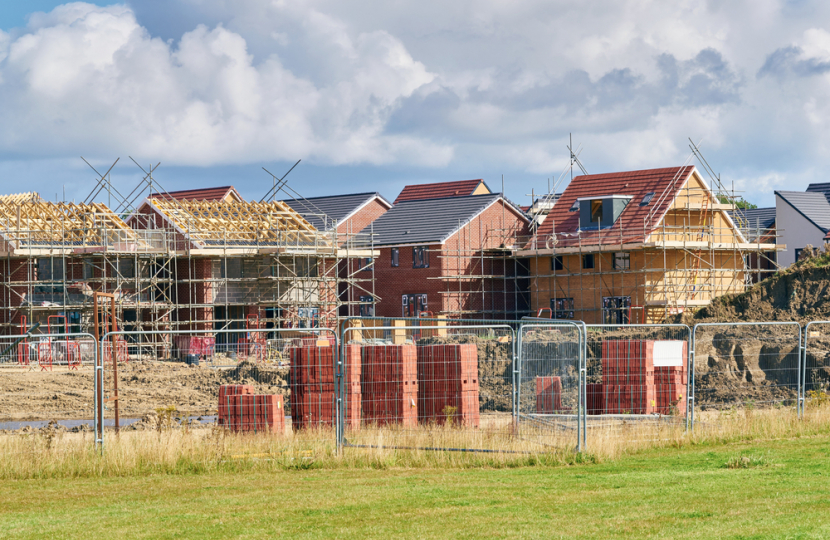
The Report Stage of the Levelling Up and Regeneration Bill is returning to the chamber of the House of Commons. There are a number of backbench amendments to the Bill, many of which I have signed, dealing with concerns I, my colleagues and – most importantly – our constituents have over the arbitrary top-down housing targets imposed on local communities.
The government has at first reacted to these amendments by doubling down on their determination to keep these top-down targets. They should pause and think again. There is an opportunity to tackle this problem of the need for more housing but in a rational way that includes local residents.
Central targets are ratcheting up pressure on councils to allow building which many of my constituents see as overdevelopment. In the years that I have had the privilege to represent my constituency of Chingford and Woodford Green, I cannot recall a time where my constituents have faced such an enormous demand for planning permission, most of which seems to centre on the building of larger and larger tower blocks, in what is unarguably an area of low-rise family housing. Worse, these tower blocks are invariably damaging because of the insufficient capacity of local public services to cope with the much greater demand.
Such plans would destroy the very nature of the community. But when challenged the council invariably replies that it is the only way to meet the targets for new homes.
Worse, if you are unlucky enough to live in a council area, as in mine, where the council also seem to wish to eradicate car usage by having next to no allocation of parking for those in these tower blocks, then parking in surrounding streets becomes a nightmare.
The government argument seems to centre on their concern that without such targets, housing supply would not meet what is needed. Yet a careful look at existing planning shows a different story. It is clear that there are already granted over one million permissions for homes but where no home has been built. When one puts that together with numbers of dwellings, it amounts to the 300,000 a year target being met for the rest of this Parliament (and almost certainly beyond), without even granting any more planning.
I hasten to point out that stopping further planning permission is not the purpose of the amendments – this point simply illustrates the nature of the unbalanced view the government seems to have of this issue.
All this shows there is a greater need for us to do what is required to get developers to build once they have received permission. The government should sort out the problem that developers would rather build up valuable land banks than build homes. The resolution of this would not only help the government meet its requirement but also free up housing for first time buyers, which we all want.
Centralised targets simply cannot recognise the different housing pressures around the country. This is why we need more local people, not just councillors, involved in local decisions and local plans. Such local voices would also be able to ensure that whatever is agreed would have to take into account the existing nature of communities and importantly, the scale of such development. This would stop councils riding roughshod over the firmly held views and life experiences of local people. Nothing illustrates this more than the housing pressures in London – such different needs and priorities must be better recognised in this bill. As things stand, they are not.
Also, it's not just those issues which the legislation needs to take account of. There is a further problem. In rural areas too, often the vast majority of new properties are pretty quickly sold to become second homes or even holiday lets. What has been happening in these areas is that local people are locked out as such housing leads to those areas becoming weekday ghost towns. Our amendments could be used to help rectify the problem.
Ultimately, we must ensure the need for housing is met in a way that can be supported by the correct infrastructure and which enhances the local environment. By getting empty homes used once again and developers building would hugely negate the need for top-down imposition which is unpopular and by no means as effective as the government is led to believe.



